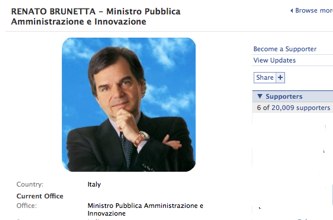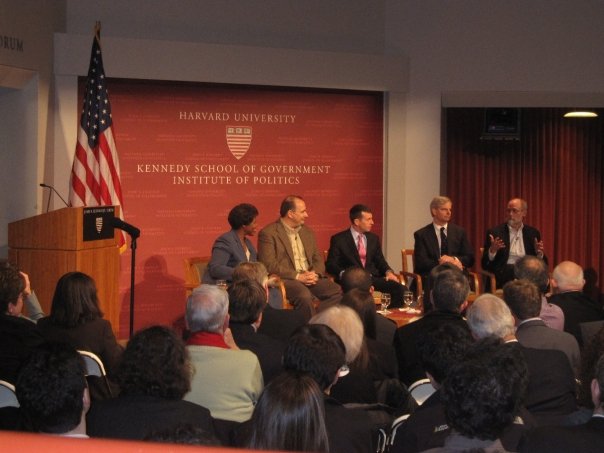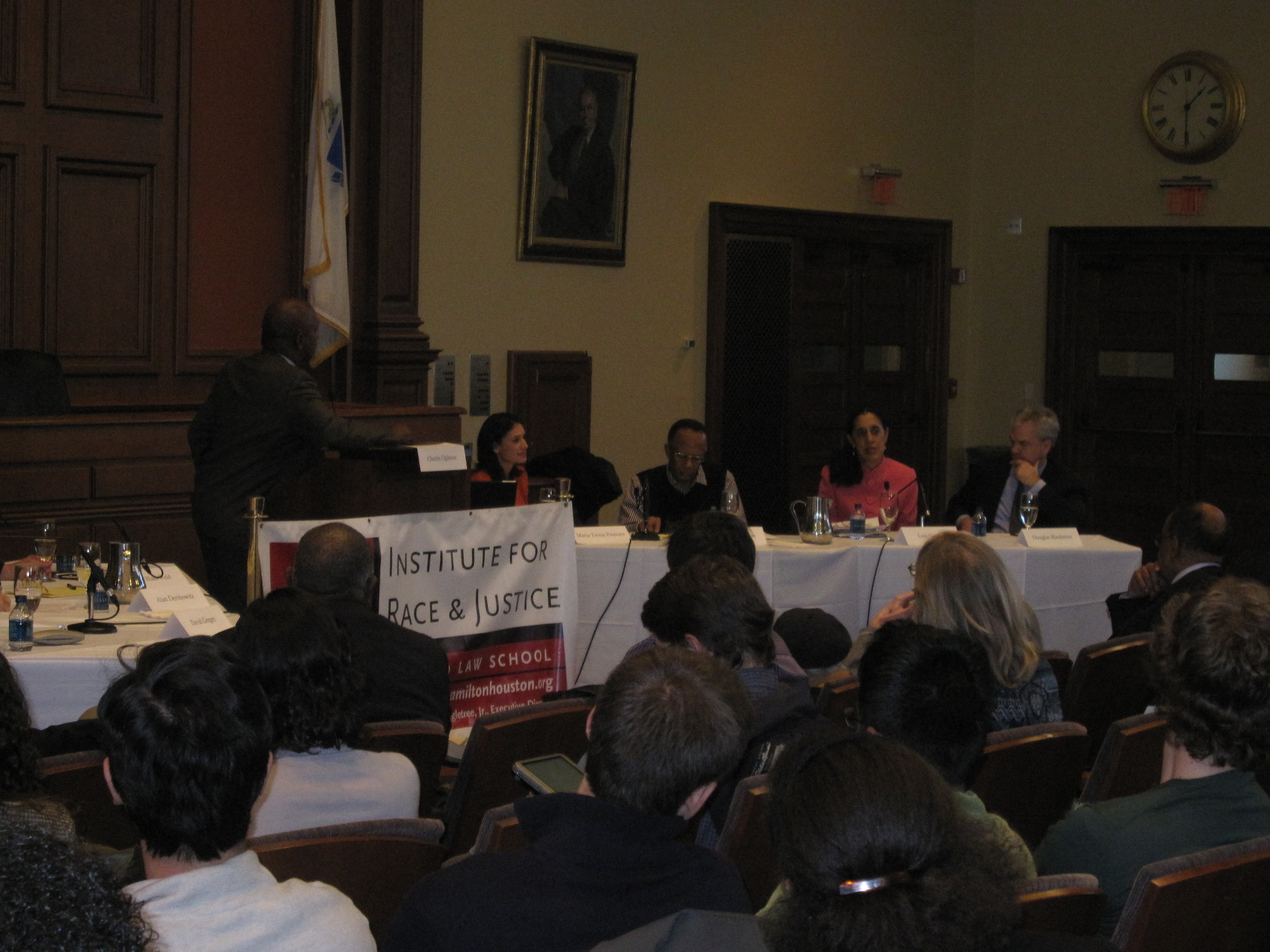It has been about two hours since CNN has shown on cable tv snippets of Obama’s first interview with Al-Arabiya TV station but no news of it appears yet on any of the major news and newspapers’ websites both national and international. The Huffington post, however, has documented it and posted a video and a transcript here and several other blogs are sharing and commenting the news.
Author: Corinna
digital natives: digital renegades or digital captives?
A few days ago in the IHT Evgeny Morozov, a Fellow at the Open Society Institute in New York, has published an interesting op-ed entitled: “Digital renegades, or captives?” where he analyzes the role of the Internet in promoting civic engagement in authoritarian regimes. Evgeny asks: “What if the original premise was wrong and the Internet is not a great force for democratic change but rather the clay that keeps authoritarian regimes together?” Evgeny alerts us to the dangers of seeing the Internet as a magic wand, which will necessarily promote democratic change and warns us about the importance of context (America vs. non-Western European countries) when analyzing the role of the Internet in aiding political change and political participation.
Evgeny goes on to argue (and I quote his words, again): “We have to be aware of the fact that the Internet has given the youth living in controlled societies infinite venues for digital entertainment – without any religious or social censorship – that may not necessarily be enhancing their digital sense of citizenship and civic engagement. Risking the comfort of their bedrooms – with their hard-drives full of digital goodies – for the gloom of a prison cell does not appeal to many of them. The governments are all too happy to promote this new cult of ‘cyber-hedonism’.”
In other words, the Internet is just a tool – we must avoid technologically deterministic arguments which stress the effects of technology by taking it out of context, and by devoiding it of social agency. Evgeny suggests two ideal types (a la Weber): ‘digital renegades’ vs. ‘captives’ which I think are much more than just another trendy name, but they are two categories which may well turn out to be a really useful analytical tool in studying young people’s civic engagement.
[Cross-posted on Internet and Democracy blog and Digital Natives blog]
the internet and politics: analyzing the 2008 us election – part 2
Here are four videos from the Berkman Internet and Politics conference held at Harvard last week.
– A conversation with Joe Trippi and Ari Melber
– A conversation with Jeremy Bird, Obama for America
– A conversation with Marshall Ganz
– The Q&A session with Marshall Ganz and Jeremy Bird
– A conversation with Yochai Benkler and Eszter Hargittai
understanding the Internet: Italian politicians go online
More and more Italian politicians have been jumping on the Internet bandwagon. The Education Minister Mariarosa Gelmini has started a YouTube channel, where she announces with a video that she hopes this channel will allow her to listen to people’s opinion, in order to “implement change together”. The video has reached 260,000 views since it was posted a week ago, and 8,000 comments. A few days ago, Renato Brunetta, the Minister for Public Administration and Innovation, has opened a Facebook page, gathering around 14,000 supporters and around 1,200 wall posts/comments. He also posts a video, in which he states that this is his first effort to reach people online, so that they can contact him with their views, and he hopes in this way he will also be able to keep them posted about his initiatives and activities. Continue reading “understanding the Internet: Italian politicians go online”
lessons in democracy from America – part 2
Yesterday at the Kennedy School of Government I attended the IOP Forum “War Stories: Inside Campaign 2008”, where David Axelrod (Chief Strategist, Obama Campaign) and David Plouffe (Campaign Manager, Obama Campaign) discussed with Rick Davis (Campaign Manager, McCain Campaign) and Bill McInturff (Chief Pollster, McCain Campaign) the 2008 presidential campaign, in an open forum. This forum was part of a tradition, the John F. Kennedy, Jr. forum series organized by the Harvard Institute of Politics, which for years has been inviting politicians, academics and journalists to debate current issues in front of an audience, made up mostly by students but also by journalists, politicians etc. These forums are moderated and they conclude with a question and answers sessions with people in the audience. As I sat there listening to the campaigners recall events and anecdotes from the campaign, and analyzing achievements and mistakes made, I could not help but thinking about the transparency and accountability promoted by such events. And wondering when there will be a day in my home country when similar events will take place….
the Internet and politics: analyzing the 2008 US election
A group of McCain and Obama campaigners, academics, activists, bloggers and journalists have gathered for two days at Harvard at a conference organized by the Berkman Center for Internet and Society examining the role that the Internet has played in the the 2008 US election. Parts of the conversation were under Chatam house rule, nevertheless here are some highlights of the lively discussions that have taken place. Some preliminary outputs of the meeting can be found here in essay format and other Berkman colleagues have blogged about the event here and at the Internet and Democracy blog.
The first day of the discussion focused very much on the role played by the Internet in the campaign. Did Obama win thanks to the Internet? Did the Internet play a role in engaging people who would have not otherwise been engaged? The first question was prominent, and the message that was stressed many times over and over, especially by Obama campaigners, was that the Internet served as a wonderful tool to coordinate and link online and offline action, with the technology playing a central but complementary role to the efforts of offline grassroots organizing. I came home with the feeling that top-down strategy played the key role in getting people involved, but that success depended very much also on the bottom-up grassroots efforts and energy that Obama and his campaign people managed to mobilize and draw upon. Continue reading “the Internet and politics: analyzing the 2008 US election”
Internet access in Italy remains low: choice or constraints?
A report published yesterday by Eurostat on Internet use and access in the 27 European member states, Norway, Iceland and Croatia, shows that Internet access in Italian households has remained stable at 42% in the last three years (it was 40% in 2006 and 43% in 2007) compared to the European average of 60%. This figure places Italy amongst the four countries with the lowest rates of Internet access in Europe, only followed by Greece (31%), Romania (30%) and Bulgaria (25%), which have all experienced a big growth since their very low levels of 2006. The percentage of Italian households with a broadband connection, on the other hand, has grown from 16% in 2006, to 25% in 2007 and 31% in 2008 – which, however, is low compared to the EU average of 48%, and again is only higher than the percentage in Bulgaria (21%), Greece (22%) and Romania (13%).
What are the reasons which keep Italians from going online? Continue reading “Internet access in Italy remains low: choice or constraints?”
when your analog dossier becomes digital
[youtube width=”315″ height=”235″]http://www.youtube.com/watch?v=79IYZVYIVLA[/youtube]
In their book Born Digital: Understading the First Generation of Digital Natives, John Palfrey and Urs Gasser introduce us to the notion of “digital dossier”, the collection of all the information and of the little traces that you are leaving behind every time you go online, while checking your email, posting on Facebook, when you Twitter or when you leave a comment on a blog. The digital dossier, as this video we made for our Berkman Digital Natives project shows perfectly and simply, is not only made up of the traces you leave online, but also of all that information that other people post about you. And while you may be aware of all the traces you are leaving behind, and you may have a certain degree of control over it, you might be less aware and have even less control on the traces that other people leave about you. Continue reading “when your analog dossier becomes digital”
Next steps for president-elect Obama and We the people
[Cross-posted on Berkman’s Internet & Democracy blog]
Today an outstanding panel gathered at Harvard Law School to discuss Obama’s election and the next steps for Obama’s administration and the American people: “In Order To Form a More Perfect Union: Next Steps for President-Elect Obama and For We the People”. Panelists included:
* Douglas Blackmon, Atlanta Bureau Chief, Wall Street Journal
* Alan Dershowitz, Felix Frankfurter Professor of Law, Harvard Law School
* David Gergen, Professor of Public Service, Harvard Kennedy School; CNN Political Commentator
* Lani Guinier, Bennett Boskey Professor of Law, Harvard Law School
* Orlando Patterson, John Cowles Professor of Sociology, Harvard University
* María Teresa Petersen, Executive Director, Voto Latino
* William Weld, Partner, McDermott Will & Emery LLP; Former Governor of Massachusetts
Professor Charles J. Ogletree, Jr., Executive Director of Charles Hamilton Houston Institute for Race & Justice acted as moderator. He opened the discussion by asking panelists how we should assess the election of Barack Obama.
Continue reading “Next steps for president-elect Obama and We the people”
How Facebook is changing Italian social and political life
[Cross-posted on Berkman’s Internet and Democracy blog]
Two events have recently shaken Italian cyberspace: the launch of the Italian version of Facebook and the comments of Italy’s Prime Minister Silvio Berlusconi after the election of President-elect Barack Obama. I believe that after these two events Italian social and political life may never be the same again.
I do not think I am exaggerating trends here, although empirical data for now is scarce. Being myself one of the early adopters of Facebook, at the start I only had a few Italian Facebook friends in my mainly Anglo-Saxon circle – most of my Italian friends were offline, and those already on Facebook like myself were mainly living abroad or they were back in Italy after having spent some time abroad. This was hardly surprising, given that Italy still has one of the lowest rates of Internet use in Europe (35.6% according to a 2006 Istat report). But in the past couple of months Facebook has been literally invaded by Italians, quickly helping Italy reach first place for the greatest (and fastest) exponential growth in adoption of Facebook by a country. Italians seem to have a natural affinity with Facebook – they are not only joining in huge numbers (Facebook is now the fifth most popular site in Italy) but they seem to have seamlessly integrated this technology in their everyday life: Facebook is fast becoming the new “telefonino”.
My surprise, however, did not stop here. With the election of President-elect Barack Obama and the subsequent unfortunate comments made by the Italian Prime Minister Silvio Berlusconi a huge wave of protest has swept Italian cyberspace. The New York Times article, which gave the news, received 2000 comments in a couple of days. Groups to protest the Prime Minister’s words have been literally mushrooming on Facebook overnight – reaching thousands of members in a matter of days (one only needs to enter ‘Berlusconi’ in the search box to check them out). The group ‘I bet I can find 1,000,000 people who dislike Silvio Berlusconi’ has reached 70,000 members, with an increase of almost 10,000 members in less than one week subsequent to the diplomatic incident. And the protest is quickly moving beyond Facebook’s boundaries. Notspeakinginmyname.com is a new website where people can upload a photo of themselves holding a banner stating that the Italian prime minister is not speaking in their names. Clearly young Italians’ discontent (as it is young people who are mainly inhabiting Facebook) and frustration with the current political situation and with their political representatives is finding in the Web a channel to let youth voice be heard.
Italians have just discovered the power of the Internet – which will make for interesting developments for the Italian media ecology and especially for political participation, in a country where the Web is still viewed with suspicion by most political candidates, with a few exceptions. This shift in social habits is only starting and whether it will gain momentum will depend on whether it will reach a tipping point (or a critical mass) – although some of the protest groups on Facebook seem to have already gotten there.




